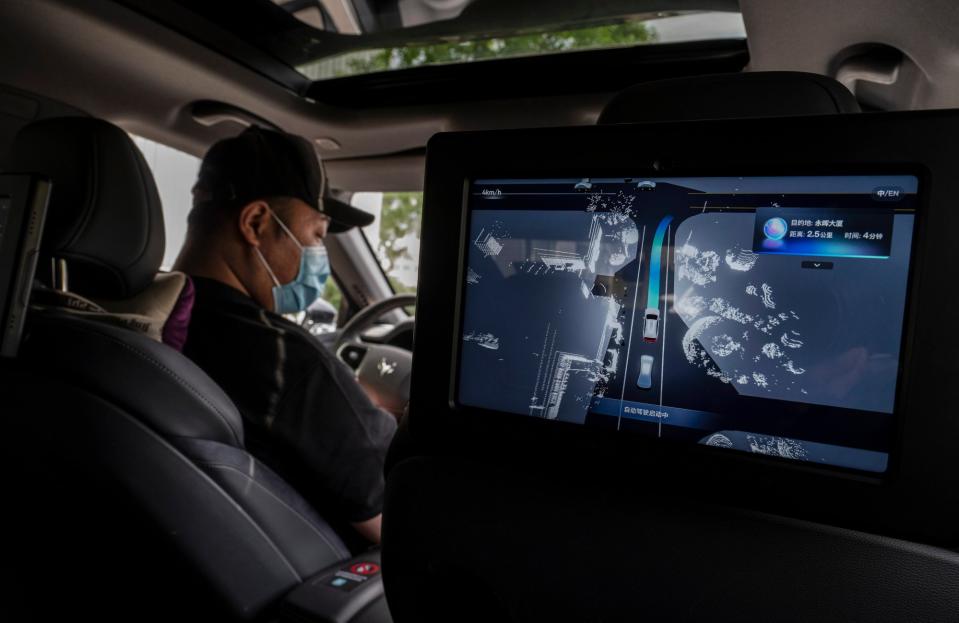Green light for autonomous vehicles: Beijing unveils biggest regulation in 5 years
Beijing's municipal government has drafted a comprehensive regulation to support and govern the development of autonomous driving technology, as the Chinese capital gets closer to filling its streets with driverless cars.
The proposed regulation, released publicly over the weekend by the Beijing Municipal Bureau of Economy and Information Technology, promises support for "technological breakthroughs" in "core areas" that include sensors, semiconductors, operating systems and algorithms. It also calls for a citywide safety monitoring platform for driverless cars.
In addition to sensor and chip development, the government plans to support "systematic access, authorised use and circulation" of data collected by driverless cars, and to reserve enough space for intelligent driving. The regulation would also require the establishment of a regulated sandbox for companies and institutions to test new technologies, scenarios and products in an "inclusive and prudent regulatory environment".
Do you have questions about the biggest topics and trends from around the world? Get the answers with SCMP Knowledge, our new platform of curated content with explainers, FAQs, analyses and infographics brought to you by our award-winning team.

A monitor shows the real-time location of an Apollo Moon robotaxi on the road as part of Baidu's autonomous ride-hailing service during a media tour on April 22, 2022 in Beijing. Photo: Getty Images alt=A monitor shows the real-time location of an Apollo Moon robotaxi on the road as part of Baidu's autonomous ride-hailing service during a media tour on April 22, 2022 in Beijing. Photo: Getty Images>
Beijing has traditionally been overly cautious when it comes to road security owing to the city's political importance. Now it is the latest Chinese city to show a greater appetite for fully embracing autonomous vehicles.
The government currently allows Baidu, Pony.ai, WeRide and AutoX to operate automated shuttle services, with a safety driver on board, between the Beijing Daxing International Airport and the hi-tech Yizhuang area in the south of the city.
Certain entities will also be allowed to conduct mapping services using self-driving cars, including reviewing and updating maps, in addition to transmitting map data, according to the proposed regulation. Mapping activity is strictly regulated in China, limiting it mostly to state-owned entities or those affiliated with Big Tech companies.
The document, which is soliciting public opinion through July 29, aims to "promote and regulate the innovative activities of self-driving cars, the development of the industry and the construction of intelligent transport", with the technology to be primarily applied to buses, taxis, freight, street cleaning and security patrols.
To ensure safety, the planned monitoring platform is meant to better manage traffic violations, accident investigations and emergency response. Beijing's plans also include a cloud-based command system to connect vehicle data with road and transport conditions, "providing converged sensing, collaborative decision-making and remote management services to driverless cars".
This marks the biggest push in China's capital city on autonomous driving since Beijing first allowed road tests in late 2019. The city has opened more than 1,160 kilometres of public roads to trials, giving 384 vehicles from 18 companies approval to participate as of February, according to the state-run newspaper Beijing Daily.
Other Chinese cities have also invested heavily in the sector. The southern tech hub of Shenzhen, which borders Hong Kong, has opened 944km of public roads to testing, including 67km of highways. Wuhan, capital of central Hubei province, has claimed to be "the world's largest autonomous driving service region", with nearly 500 regularly-operated self-driving vehicles on the roads, including robotaxis and unmanned buses, serving 900,000 people across 732,000 orders in 2023.
This article originally appeared in the South China Morning Post (SCMP), the most authoritative voice reporting on China and Asia for more than a century. For more SCMP stories, please explore the SCMP app or visit the SCMP's Facebook and Twitter pages. Copyright © 2024 South China Morning Post Publishers Ltd. All rights reserved.
Copyright (c) 2024. South China Morning Post Publishers Ltd. All rights reserved.

 Yahoo Finance
Yahoo Finance 